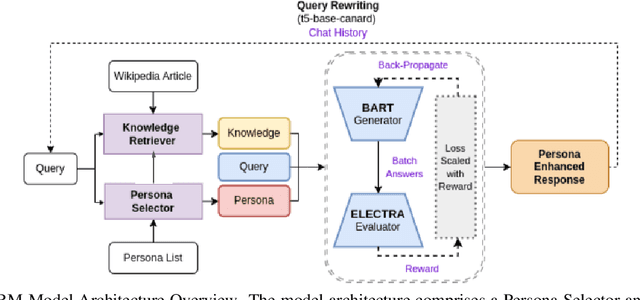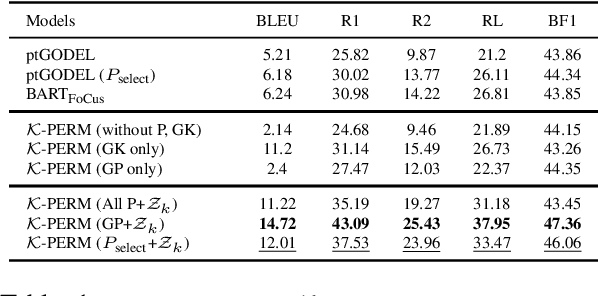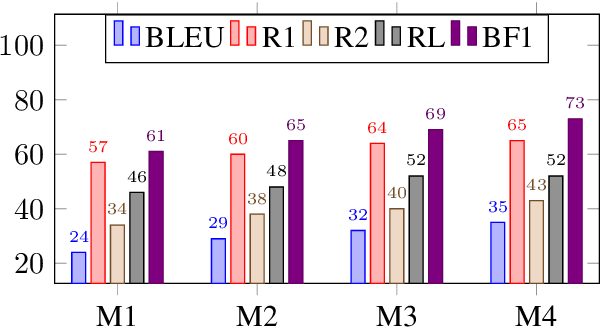Kanak Raj
K-PERM: Personalized Response Generation Using Dynamic Knowledge Retrieval and Persona-Adaptive Queries
Dec 29, 2023



Abstract:Personalizing conversational agents can enhance the quality of conversations and increase user engagement. However, they often lack external knowledge to appropriately tend to a user's persona. This is particularly crucial for practical applications like mental health support, nutrition planning, culturally sensitive conversations, or reducing toxic behavior in conversational agents. To enhance the relevance and comprehensiveness of personalized responses, we propose using a two-step approach that involves (1) selectively integrating user personas and (2) contextualizing the response with supplementing information from a background knowledge source. We develop K-PERM (Knowledge-guided PErsonalization with Reward Modulation), a dynamic conversational agent that combines these elements. K-PERM achieves state-of-the-art performance on the popular FoCus dataset, containing real-world personalized conversations concerning global landmarks. We show that using responses from K-PERM can improve performance in state-of-the-art LLMs (GPT 3.5) by 10.5%, highlighting the impact of K-PERM for personalizing chatbots.
Cook-Gen: Robust Generative Modeling of Cooking Actions from Recipes
Jun 01, 2023



Abstract:As people become more aware of their food choices, food computation models have become increasingly popular in assisting people in maintaining healthy eating habits. For example, food recommendation systems analyze recipe instructions to assess nutritional contents and provide recipe recommendations. The recent and remarkable successes of generative AI methods, such as auto-regressive large language models, can lead to robust methods for a more comprehensive understanding of recipes for healthy food recommendations beyond surface-level nutrition content assessments. In this study, we explore the use of generative AI methods to extend current food computation models, primarily involving the analysis of nutrition and ingredients, to also incorporate cooking actions (e.g., add salt, fry the meat, boil the vegetables, etc.). Cooking actions are notoriously hard to model using statistical learning methods due to irregular data patterns - significantly varying natural language descriptions for the same action (e.g., marinate the meat vs. marinate the meat and leave overnight) and infrequently occurring patterns (e.g., add salt occurs far more frequently than marinating the meat). The prototypical approach to handling irregular data patterns is to increase the volume of data that the model ingests by orders of magnitude. Unfortunately, in the cooking domain, these problems are further compounded with larger data volumes presenting a unique challenge that is not easily handled by simply scaling up. In this work, we propose novel aggregation-based generative AI methods, Cook-Gen, that reliably generate cooking actions from recipes, despite difficulties with irregular data patterns, while also outperforming Large Language Models and other strong baselines.
 Add to Chrome
Add to Chrome Add to Firefox
Add to Firefox Add to Edge
Add to Edge